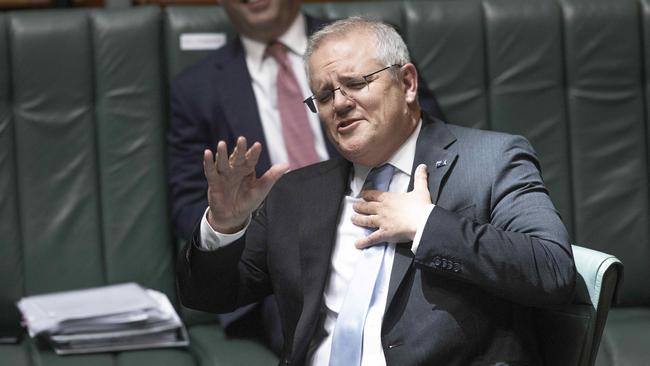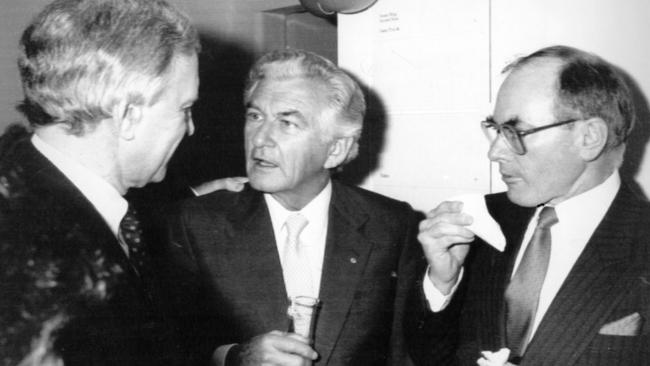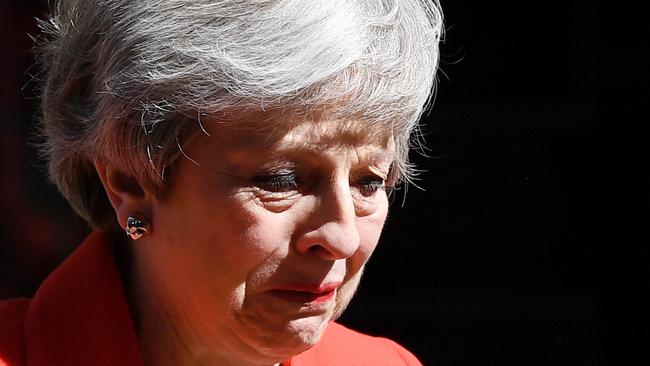Christopher Pyne: Early elections have not gone well for the incumbents
If the Prime Minister gambles on an early election, the odds will quickly turn against him. It’s happened before, writes Christopher Pyne.

Opinion
Don't miss out on the headlines from Opinion. Followed categories will be added to My News.
Oh no! We’ve entered the election date speculation twilight zone!
Most journalists, especially in the Canberra Bubble of the Parliamentary Press Gallery, want to be the first to fire the starter gun on their favourite past time of feverish date speculation for the next Australian Election.
This year it was the wily Denis Shanahan of The Australian. Shanahan is something of a doyen of the Canberra Press Gallery and I have shared many a pleasant evening at his and his indomitable wife Angela’s home in Canberra over the past almost 30 years.
Shanahan wrote a piece between Christmas and New Year speculating on election dates between now and the last date an election can be held on Saturday May 21, 2022 before concluding that the most likely time for an election was October 2021.
Regardless of the whys and wherefores of Shanahan’s analysis, and it is as good as any, if not better than most, it fascinates me how obsessed the Australian Press Gallery become with this subject.
For many in the Press Gallery, their favourite subjects are leadership speculation and of course, the election itself.
Writing about the possible dates of when an election might be called seems niche to most Australians but it is meat and drink to journalists.
It is like speculating about who will be drafted in the AFL, NRL or NBL for Australian sports journalists. It’s quite harmless.
The election will be whenever Prime Minister Scott Morrison wants it to be on or before May 21, 2022.
There are a handful of people close to the Prime Minister who will have impact on that decision – the pollsters, party directors, fundraisers and his closest staff.

There is a focus in the nation’s capital at present on an election being conducted in spring this year. That would be around seven months earlier than it is due.
National elections are held every three years. The last one was May 18, 2019. If an election is in October, that would be two and a half years after the last election. It is not super early, but it’s early in such short terms.
Why would the Prime Minister cut short the term of his government? Of course, he hopes to win. If the current circumstances pertain, he probably will. But every election is there to be won and lost.
The Liberal National Coalition Government has a bare one-seat majority. Much is lost betwixt lip and cup as the saying goes.
If the Prime Minister gambled on an election in October this year and lost, his Ministers and backbenchers certainly wouldn’t thank him for that.
The history of early elections is poor for the incumbent government in Australia. When an early election is called, it seems the Australian public instinctively feels it is being taken for a ride. Given that they hardly focus on politics at the best of times, people appear to resent being brought back to the polls prematurely. I’m sure some voters think that the government must be up to something, otherwise, why wouldn’t they wait until the election is due?
In those circumstances, a government needs a very good reason to call an early election.
One good reason would be that the Senate had blocked the supply of money through the parliament, as occurred in 1974. The Whitlam Government won that early election and the fact that it was early wasn’t blamed on Prime Minister Gough Whitlam because it was hardly his fault that the Senate wouldn’t pass his government’s Budget.
But since then, early elections have not gone well for the incumbents.
In 1984, for no good reason, other than that Prime Minister Bob Hawke thought that he could win easily against Opposition Leader, Andrew Peacock, Hawke called an election only half way through the term.
He was given a bloody nose by the voters because it looked like he was taking a win for granted and Peacock surprised many by taking many seats from Labor. Hawke won, but not well.

Prime Minister John Howard called an early election in 1998 after being elected in 1996 and won a slim majority of seats in an election where the Labor Party, led by Kim Beazley, won a slim majority of votes. Howard didn’t call an early election again.
The most spectacular recent example of an own goal being scored in an early an unnecessary election is not home grown but was experienced in the United Kingdom in 2017. The British Prime Minister, Teresa May called an election only two years into a five-year term.
In 2015, the Conservative Government of David Cameron had been re-elected with a majority of its own. May’s early election plunged the Conservative Government into minority status relying on the micro Democratic Unionist Party of Northern Ireland.
It was a fiasco from which May never recovered. She was gone two years later.
Here in South Australia, Labor Premier Des Corcoran called an election in 1979, a year earlier than it was due. He had only been Premier for five months and was defeated by Liberal Leader, David Tonkin, in what was regarded as a surprise.
History is against successful early elections for the incumbent.
While I can’t pretend to know what is in the Prime Minister’s mind and wouldn’t presume to tell him what he should do, my money is on him maintaining his steady as she goes, getting on with it persona that has worked so well for him since late 2018.
We shall see.



